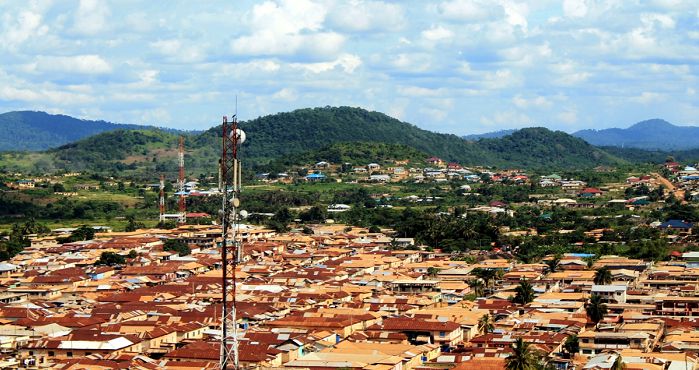
Re-engineered Obuasi will deliver more for Ghana
The mining industry in the country has been the subject of intense debate over the past three decades, initially about its effects on the environment and more recently its contribution to the national economy and living standards in the mining communities.
This is because, for a mining-bedded economy such as ours, the contradictions are sometimes all too evident: contradictions of a state seeking to milk more from the mining industry, yet seemingly unwilling to tackle the challenges that confront the industry; the intriguing contradiction of mining communities seeing wealth leave their soil, yet enveloped in thick veils of poverty.
Advertisement
These contradictions and perceptions have resurfaced, following the reopening of the AngloGold Ashanti Obuasi Mine by President Akufo-Addo last week.
The over-a-century-old gold mine, one of the most productive in the world between the 1980s and the first decade of the new century, is back from the dead and critics are asking why the government should make such generous concessions to revive an old mine.
There are some who say that the state is sacrificing substantial revenue that would have accrued to it if the fiscal concessions had not been granted.
Altogether, the concessions are worth $259 million in foregone revenues, largely from a reduction in the corporate tax rate applicable to the company from 35 per cent to 32.5 per cent, as well as a reduction on the five per cent royalties rate applicable to other mining companies.
These concessions have enabled an $881-million investment to be made in the requisite redevelopment of the mine, equity and debt inclusive.
Indeed, the total investment that will be required over the projected 22-year lifespan of the mine in its new form will amount to $1.6 billion altogether.
But for us at the Daily Graphic, the reopening of the Obuasi Mine is good for the economy of the country.
This is because we project that an estimated 2,500 jobs will be created to reduce the current levels of unemployment in the country to make mining an anchor to new opportunities in the enclave that will spur economic development.
Again, many livelihoods will be created from the licensing of small-scale miners to exploit 60 per cent of the company’s concession which it has relinquished to the government for the establishment of community mining under the terms of the agreement.
We are confident that the reopening of the Obuasi Mine will bring Obuasi back to its old vibrancy to make life there better than before, since underground mining comes without the severely noticeable environmental degradation that inevitably accompanies surface mining.
But the most important benefit to be derived from the reactivation of the mine will be the soaring of the country’s reputation as an attractive destination for global mining industry players.
The facilitating support provided by the state provides the needed assurances for global players and investors that Ghana still welcomes and is ready to support them.
This is even more crucial because at a time when mining companies are warning that new investment in exploration and existing mine redevelopment and expansion is dwindling, the state’s support for the reactivation of the Obuasi Mine should prove crucial in rekindling investor confidence and enthusiasm.
For us, the contribution that the reopened Obuasi Mine will make to the economy of Ghana is real and, indeed, key to its economic fortunes, going forward.
This means that although the quantitative analyses of the state’s contribution to the reopening of the Obuasi Mine exist, those looking at the big picture will tend to agree with the government’s decision on the basis that the intangible and unquantifiable benefits will be at least as important as the ones that everyone can see and appreciate.



